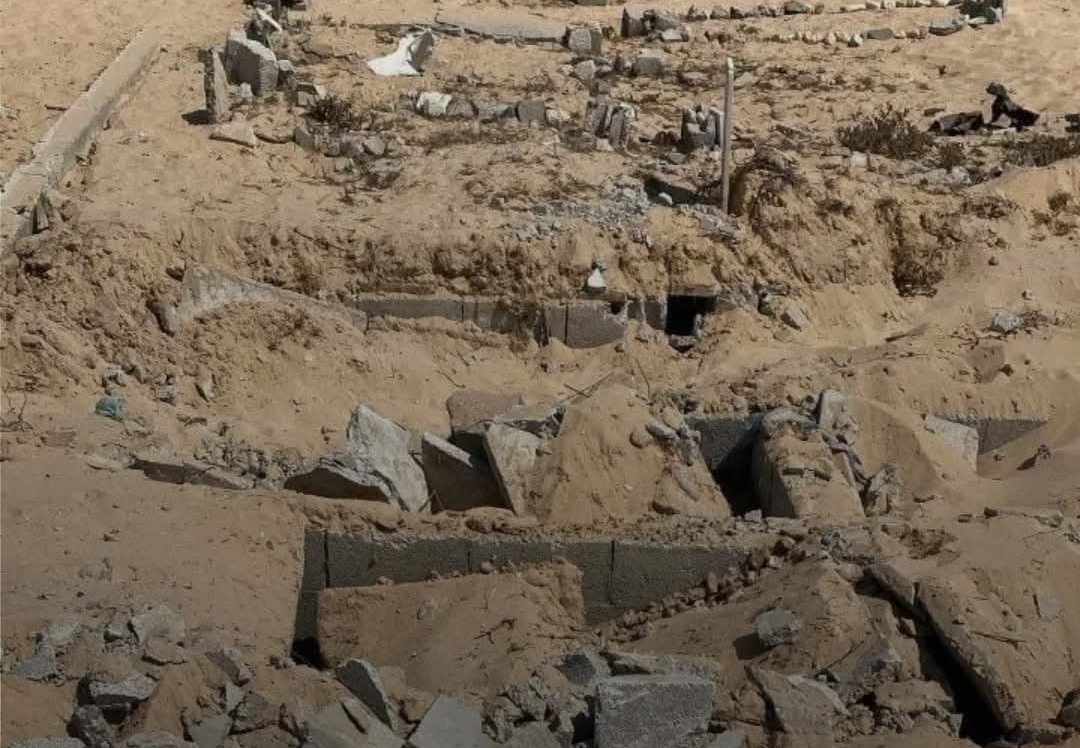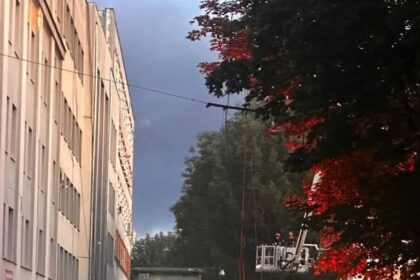Israeli troops stormed the Turkish cemetery in Khan Younis at dawn on July 10, deploying armored vehicles that crushed graves and unearthed bodies, Gaza’s Ministry of Endowments and Religious Affairs reports. Officials say soldiers destroyed headstones and dug up remains while allegedly searching for Israeli hostages buried at the site.
The ministry branded the assault “a crime that exceeds the limits of humanity,” condemning it as a blatant violation of religious and international legal norms. It added that the operation desecrated a revered sacred ground, inflicting deep emotional harm on survivors and relatives.
Since the war began in October, Gaza officials report Israeli forces have demolished or damaged roughly 40 out of 60 cemeteries across the territory.
Independent investigations—by CNN, The New York Times and others—confirm at least 16 cemetery sites faced grave destruction and military encampment. Satellite imagery reveals armored vehicles carving routes through Bani Suheila, Shajaiya and other cemeteries, obliterating graves and breaking tombstones .
Israel’s military defends these operations as necessary to locate hostages, stating it acts on “critical intelligence” and conducts “precise hostage recovery missions,” returning non‑hostage remains with dignity . In Khan Younis, home to the Turkish cemetery, troops reportedly discovered tunnels beneath the burial grounds, which they claimed Hamas used for military purposes .
Human rights observers argue international humanitarian law protects cemeteries unless they present undeniable military threats. Legal experts consider intentional damage to religious sites without necessity a potential war crime under the Rome Statute.
UNESCO and human‑rights NGOs issued stern warnings, citing the destruction of tombs and exhumation of corpses as severe breaches of the dead’s dignity .
Locals in Khan Younis express grief and outrage. Bilal Al‑Qahwaji mourns that sites holding generations of ancestors have vanished, leaving families without graves to visit.
Gaza’s Endowments Ministry estimates Israeli forces have desecrated nearly two‑thirds of cemeteries, with bodies taken or damaged beyond recognition . In August 2024, Israel conceded to returning 89 decomposed bodies from such operations .
Cultural heritage experts warn the loss of cemeteries compounds Gaza’s trauma. Beyond physical devastation, each burned tombstone erases a memory, removing threads of collective identity woven across centuries.
With nearly 70 % of Gaza suffering damage and over 1.9 million displaced, these ruins deepen civilians’ suffering .
Gaza’s ministry demands international bodies, including the ICC and UN, press Israel to halt the desecrations and ensure hostages are recovered without destroying sacred sites. The ministry urges accountability for destroyed tombs and emotionally shattered families.
Despite debris, survivors hope for justice. The ministry calls for restoration of cemeteries and safe access to gravesites. Advocates press for neutral investigators to assess damage and push Israel to respect religious sanctity even amid warfare.




